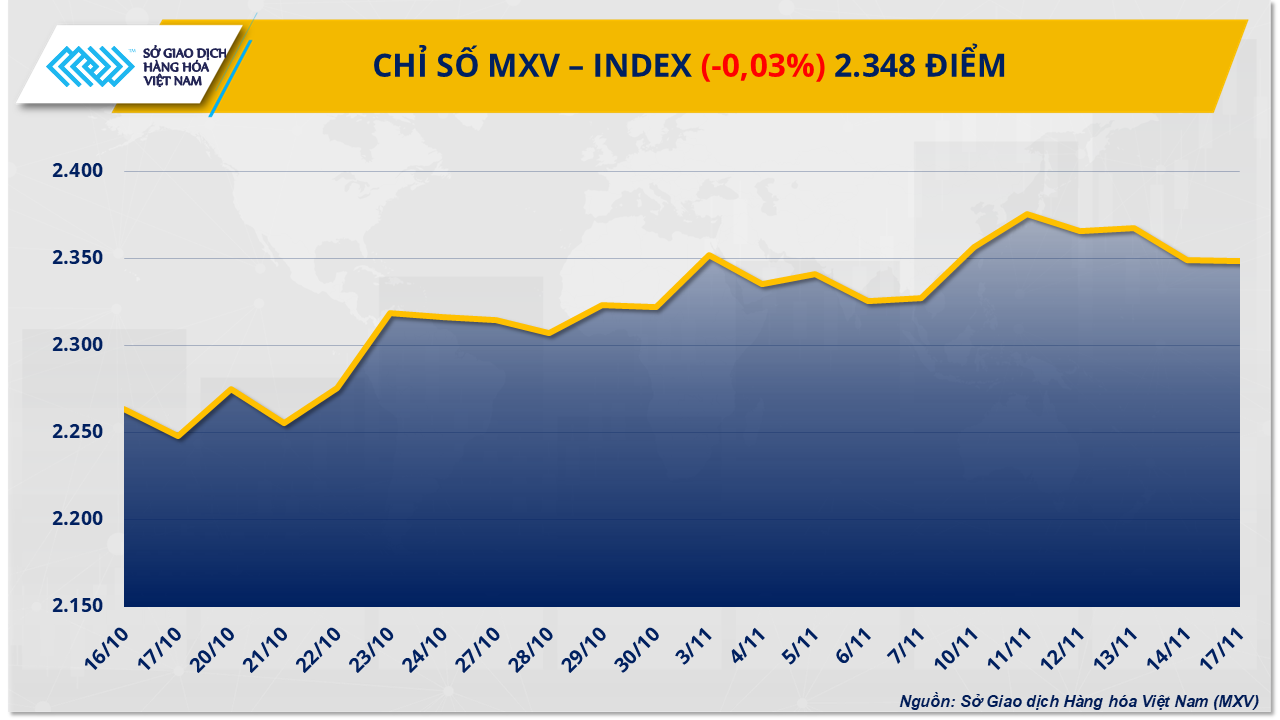
Coffee prices quickly recovered
At the end of yesterday's trading session, the industrial raw material market recorded mixed developments. Notably, Robusta coffee prices increased by more than 6% to 4,483 USD/ton while Arabica coffee prices also increased slightly by nearly 0.7% to 6,674 USD/ton.
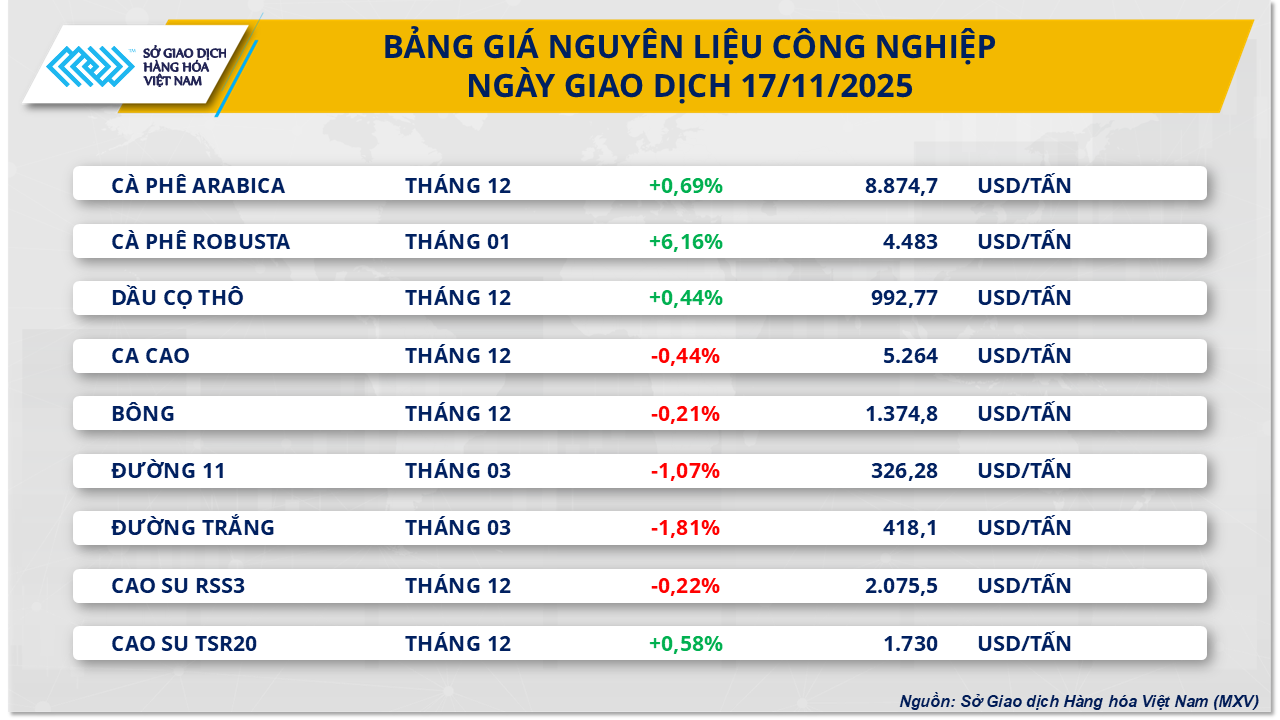
After a sharp correction last week when the Trump administration announced the removal of tariffs on some non-US agricultural products, including coffee, the market quickly recovered in the first session of the week as fundamentals continued to hold. Adverse weather is directly affecting production in Vietnam and Brazil, while global inventories remain at record lows, putting great pressure on supply.
In Vietnam, typhoon Kalmaegi landed in the Central Highlands on the evening of November 6, seriously disrupting the 2025-2026 harvest. Key areas such as Chu Se (Gia Lai), Ea H'leo, Cu M'gar ( Dak Lak ) and Lam Dong have only completed about 10-20% of the area. Prolonged heavy rains have prevented farmers from drying outdoors, forcing them to switch to mechanical drying or selling fresh, affecting the quality of the beans. Many batches of coffee have shown signs of black fruit, raising concerns about the actual Robusta output. In Chu Se, fruit drop is common, with each harvest yield only reaching 3-5 tons of fresh fruit; if the weather is favorable, it is expected to enter the peak harvest in about two weeks.
In Brazil, exports in the first half of November continued to decline sharply. In the first 10 working days of the month, the average export volume was only 12,850 tons/day, down 14.4% compared to the same period last year. Inventories at ICE continued to shrink: Arabica down to 400,800 bags - a 1.75 year low; Robusta down to 5,650 lots - a 4 month low, continuing to support prices.
Domestically, the trading market yesterday remained quiet. Some warehouses maintained the purchase price of 108,000-109,000 VND/kg from the end of last week, while some units have not announced the price due to priority delivery. In Buon Ma Thuot (Dak Lak), purchasing activities have resumed but the volume is still limited; scattered rain continues to slow down the sales progress and the price level is generally stable compared to last week.
Copper prices fell for the third consecutive session.
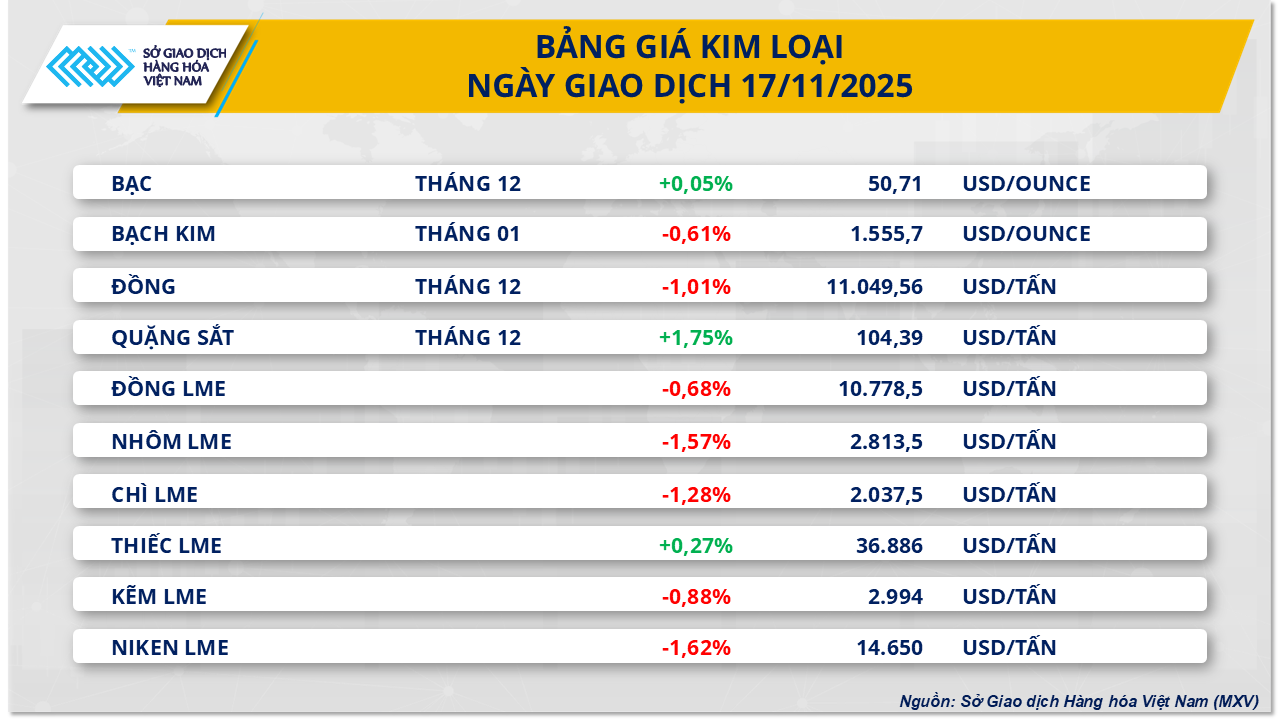
Selling pressure spread across the metals market yesterday, with COMEX copper extending its losing streak for a third session, losing more than 1% to $11,049 a tonne. According to MXV, copper’s weakness was driven by a double whammy of a stronger US dollar and fundamental supply-demand signals.
The USD-Index (DXY) continued to increase by 0.29%, approaching the 100-point mark as the market leaned towards the scenario that the US Federal Reserve (Fed) would keep interest rates unchanged in December. Maintaining high interest rates strengthens the strength of the USD, thereby putting pressure on commodities priced in the greenback. According to CME FedWatch, the probability that the Fed will not adjust interest rates by the end of this year has increased to 57%, compared to 38% a week ago. The main reason comes from the lack of US economic data due to the government shutdown in October, which has reduced the reliability of reports such as CPI or labor data and forced the Fed to be more cautious.
On the supply side, the copper market has recently been impacted by expectations of improved supply. In the US, Washington has included copper in the list of critical minerals to boost domestic mining and refining. With estimated reserves of about 47 million tonnes (nearly 5% of the world), the US has a lot of room to increase production, thereby adding significant supply to the world market.
In Chile, supply pressure was even more evident as output at the Escondida mine - the world's largest - increased sharply by 17% in September to 118,600 tonnes.
On the other hand, China, the world’s largest copper consumer, is showing signs of weakening demand. The domestic refining industry is facing overcapacity and fierce price competition, forcing the industry association to propose limiting capacity expansion. While this may be a factor supporting prices in the long term, in the short term, this direction reduces the demand for imported ore and concentrate. Chinese customs recorded a decline in imports of these two commodities for two consecutive months, down to just under 2.5 million tons in October.
Source: https://baotintuc.vn/thi-truong-tien-te/gia-caphe-robusta-tang-vot-hon-6-gia-dong-tiep-da-suy-yeu-20251118084126949.htm








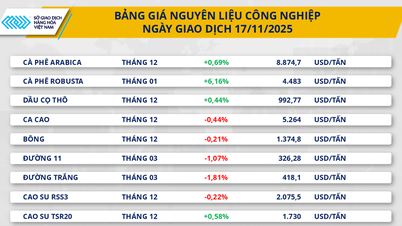

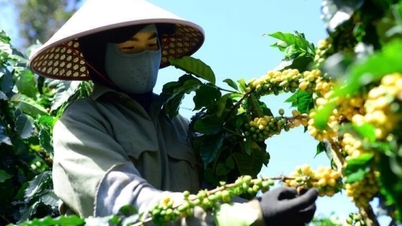

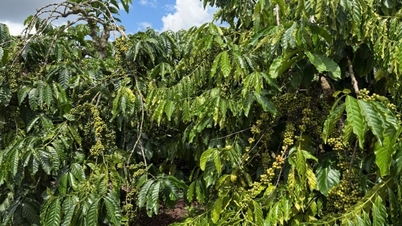


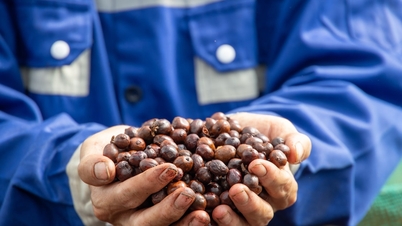





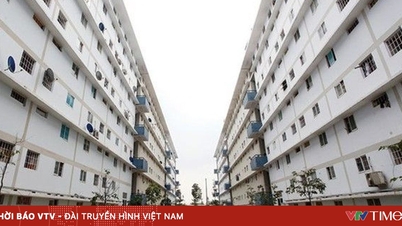


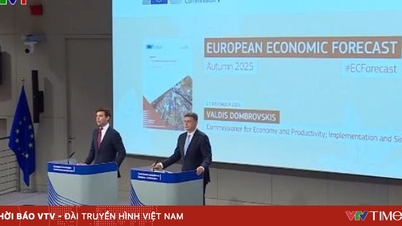











![[Photo] General Secretary To Lam and National Assembly Chairman Tran Thanh Man attend the 80th Anniversary of the Traditional Day of the Vietnamese Inspection Sector](https://vphoto.vietnam.vn/thumb/1200x675/vietnam/resource/IMAGE/2025/11/17/1763356362984_a2-bnd-7940-3561-jpg.webp)









































































Comment (0)